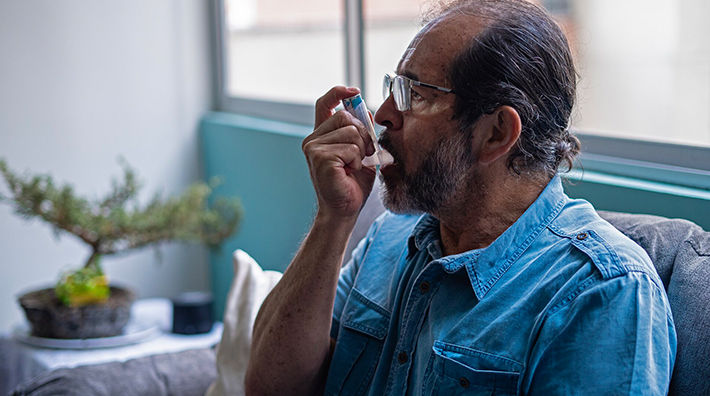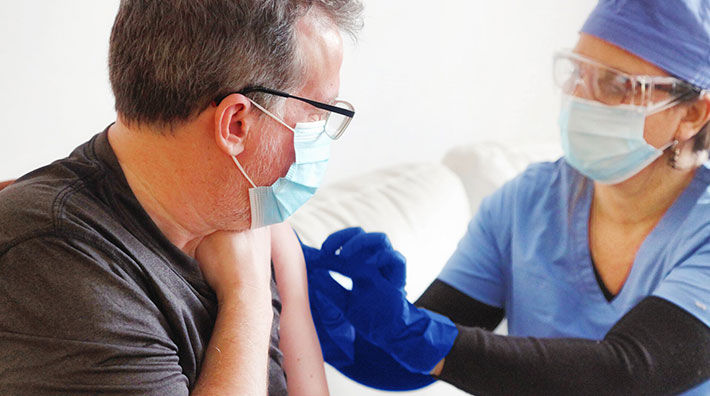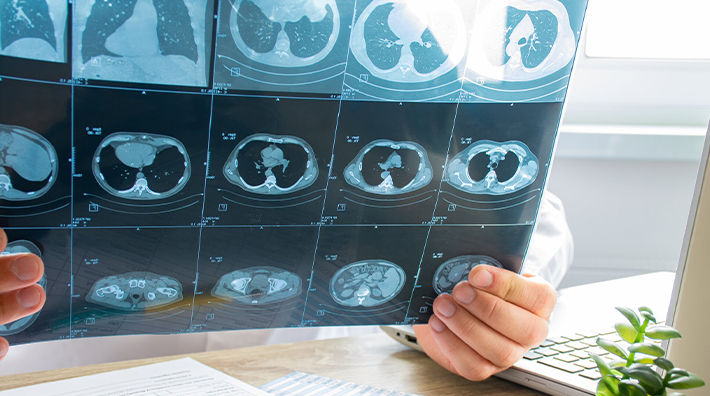Cancer Connections
Cancer News, Stories, and Conversations
Our team of experts brings you cancer-related news, features, and survivor stories.
Filtering by:
Lung CancerAsthma or COPD: How Symptoms Could Mask Signs of Lung Cancer
Published on: November 21, 2024
Symptoms of asthma and COPD can delay a lung cancer diagnosis. Learn more about symptom monitoring, lung cancer screening, and what to ask your doctor.
Quitting Smoking in Your 60s? Research Shows It's Worth It
Published on: November 19, 2024
When people ages 65 and over quit smoking, they can increase their life expectancy, a new study shows. Find out more about how to quit tobacco successfully.
Quitting Smoking in Your 60s? Research Shows It's Worth It
Published on: November 19, 2024
When people ages 65 and over quit smoking, they can increase their life expectancy, a new study shows. Find out more about how to quit tobacco successfully.
Lung Cancer & Flu Season: 6 Key Insights from an Expert
Published on: November 12, 2024
Getting colds or the flu is more likely during fall and winter. Dr. Charu Aggarwal offers advice to help people with lung cancer avoid colds and the flu.
Smoking and Vaping Together Increases Lung Cancer Risk More Than Smoking Alone
Published on: November 7, 2024
Find out how smoking both traditional cigarettes and e-cigarettes affects lung cancer risk. Get tips to help you quit using all forms of tobacco.
Targeted Drug Stops Lung Cancer Growth for Five Years in Over Half of People with Mutated Lung Cancer
Published on: June 13, 2024
A study shows that a targeted therapy drug stops the spread of lung cancer for 5 years or more. The drug, lorlatinib (Lobrena), also stops new cancer growth in the brain.
Targeted Cancer Drug Lowers Risk of Cancer Growth or Death in Lung Cancer with a Specific Mutation
Published on: June 13, 2024
A study has shown that giving patients with lung cancer a targeted therapy drug after combined chemotherapy and radiation therapy helps them live longer without the cancer growing or spreading.
Lung Cancer Risks for People Who Don't Smoke
Published on: October 14, 2020
About 20% of people who die from lung cancer in the United States every year have never smoked or used any form of tobacco. Here’s what we know about why some people who don't smoke get lung cancer.








